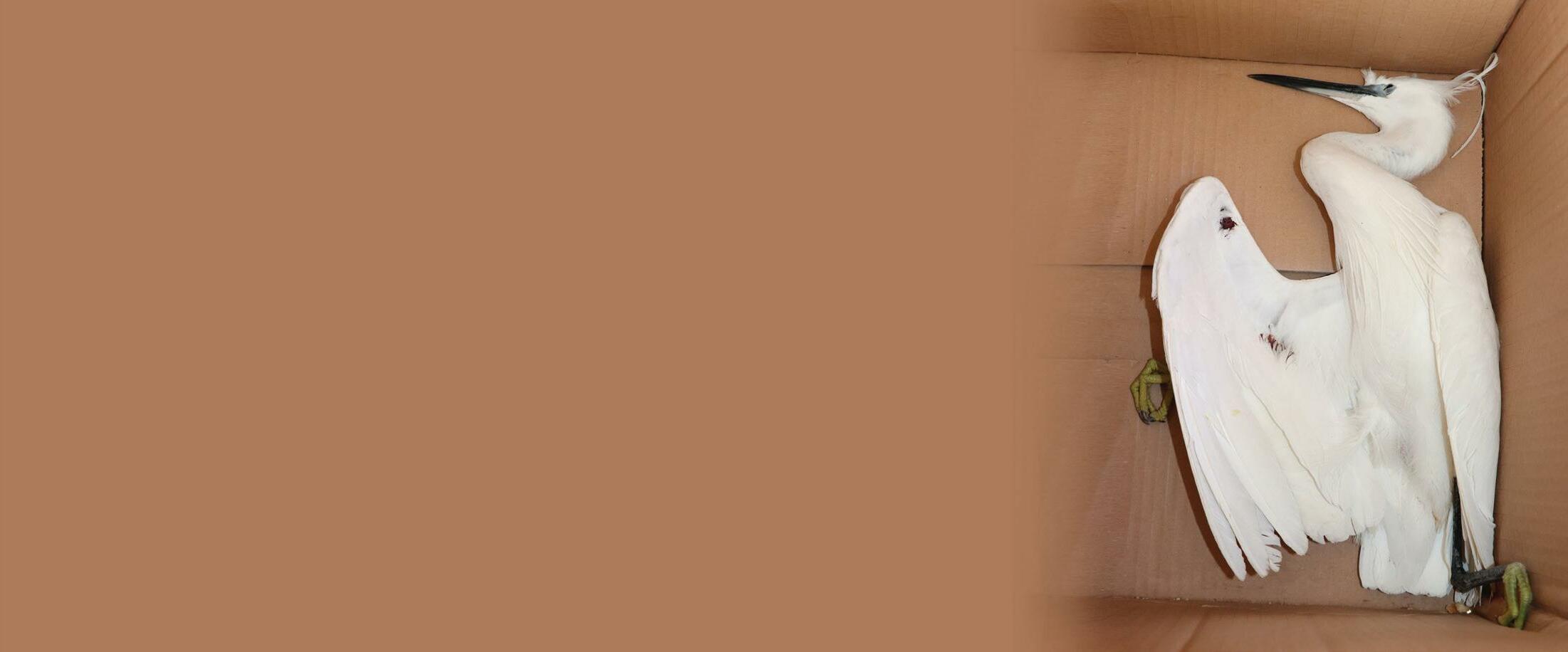
7 minute read
News
Illegal killing of protected birds in Malta remained rampant in 2021. Records show that in 2021 the number of protected birds known to BirdLife Malta as having been shot stood at 181. This figure is only a small fraction of the actual amount, as it only represents injured or dead birds found by members of the public and passed to us or the police. Thousands more were shot down and retrieved by the culprits, mainly for taxidermy. The figure confirms an upward trend in the past four years (604 birds) when compared to the previous four (190 birds). This confirms that the Prime Minister, his Cabinet and the relevant authorities are not taking illegal hunting and trapping seriously, even though the European Commission began legal action against Malta on this issue and on the scam ‘scientific research’ finch-trapping derogation. In a press release issued following the end of the autumn hunting season (which ran from 1 September 2021 to 31 January 2022), we called on both main political parties to stop being spineless with law-breakers and to address illegal killing and trapping seriously.
Dead Little Egret –one of last year’s hunting casualties
Advertisement
Trapping seasons closed
The autumn 2021 trapping season for Golden Plover, which started on 1 November 2021, ended on 3 January 2022, seven days before it was due. In a statement, the Wild Birds Regulation Unit announced that the bag limit for Golden Plover had been reached and the season was being closed with immediate effect. Meanwhile, another trapping season for Song Thrush that ran from 20 October ended on 31 December, while a third season was the infamous smokescreen finch ‘scientific study’. The scam ran from 20 October to 20 December, and landed Malta again in hot water with the European Court of Justice.
BirdLife Malta turns 60!
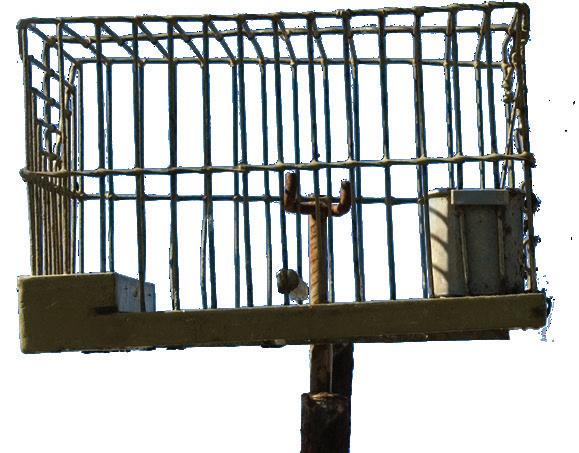
In 2022 BirdLife Malta celebrates 60 years of work and achievements. On 25 January 1962 BirdLife Malta (then known as the Malta Ornithological Society, or MOS) was born. In a press release – appropriately issued on 25 January this year – we expressed how this year will be a time to reflect on the past 60 years, to reinforce our success stories, to celebrate the beauty of birds and nature, and to look to the future and what challenges it will bring. As the oldest and largest environmental organisation in Malta, BirdLife Malta pledges to remain the flag-bearer of nature protection and to be at the front line to push for improvements in the country’s approach to biodiversity. We also launched a special anniversary logo that we will be using throughout this year.
For our Environment: from Words to Action!
In the first week of March BirdLife Malta joined other eNGOs to put forward nine key environmental demands which were sent to all political parties and candidates running for office in the 2022 General Election. The proposals presented by a united front of environmental NGOs were followed up with press releases, articles and press conferences, to highlight the lack of tangible and practical solutions in electoral manifestos to safeguard the quality of life of all residents of the Maltese Islands. The nine topics covered by these demands are: Governance, Climate Change, Sustainable Mobility, Urban Development, Rural Policy, Habitat and Biodiversity, Marine Areas, Agriculture and Food Systems, and Waste Management. The full text can be found in the news section of our website.
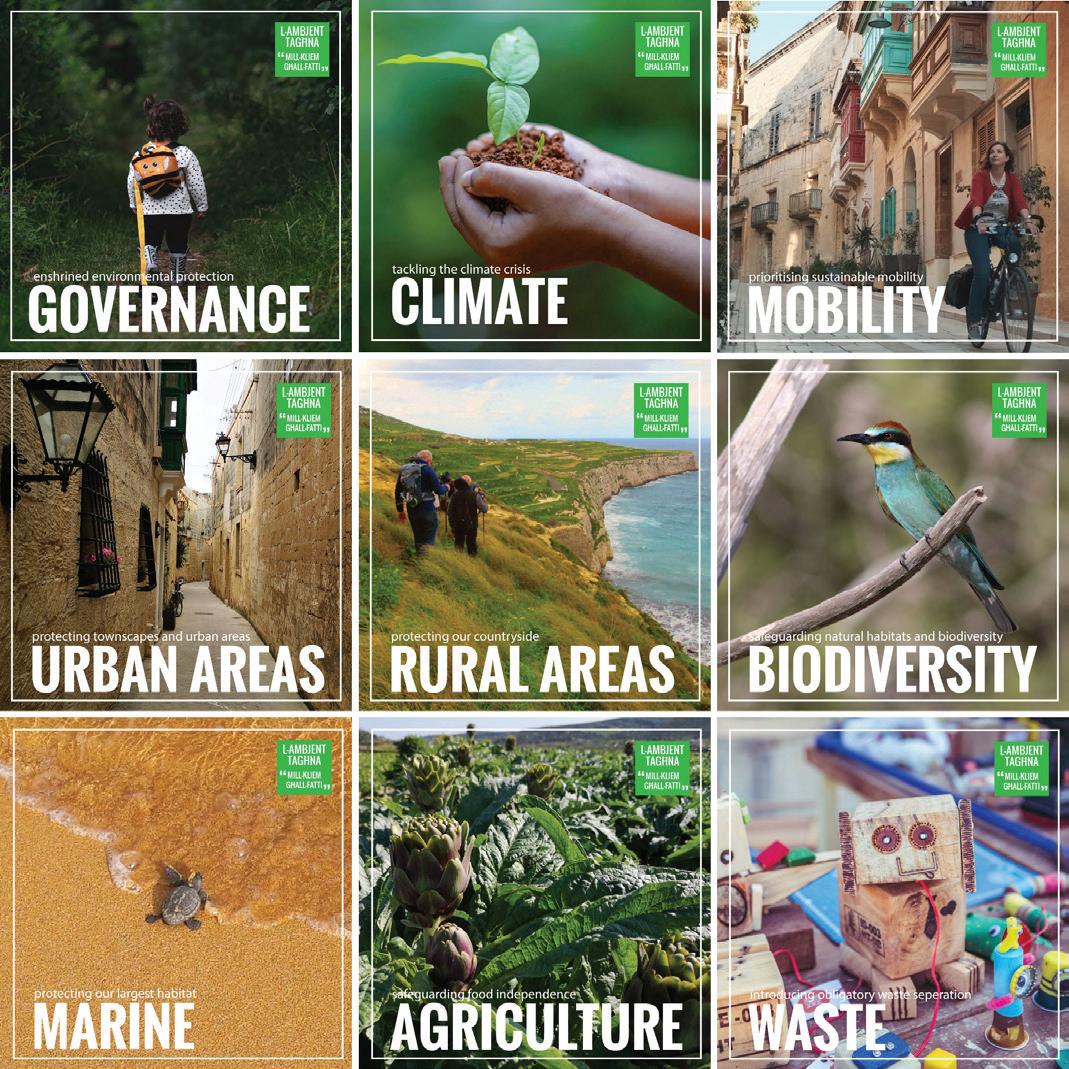
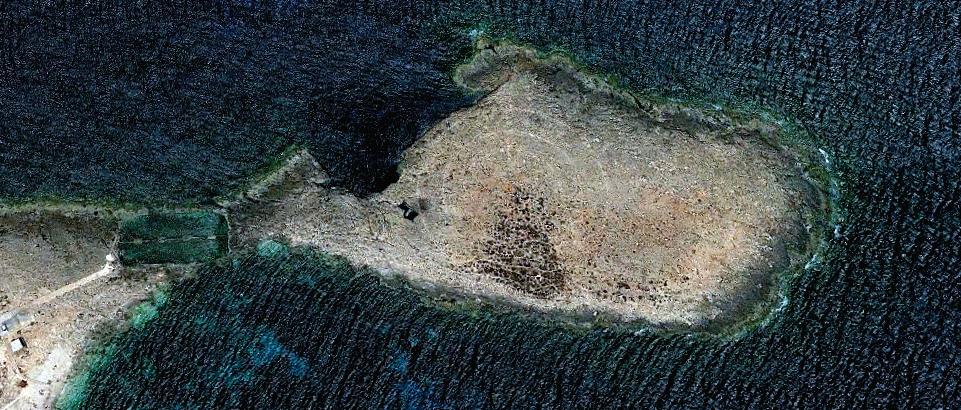
An empty promise?
Following the massacre of protected Flamingoes at Qawra Point last year, Environment Minister Aaron Farrugia publicly stated the site will be made off limits to hunters. It seems, however, that he failed to find support from the rest of the Government to push this pledge through. The site remains a bird-killing black spot to this day.
BirdLife Malta joined the Marsaxlokk community in opposing plans by the Local Council to build a community centre right inside their primary school’s garden. For many years BirdLife Malta has helped schools create nature-friendly green spaces within their grounds. Studies show that such spaces provide opportunity for outdoor learning through nature and are linked with students’ mental and physical health and well-being. Our Ġonna Dinja Waħda projects in schools connect children with nature, which is the exact opposite of the Marsaxlokk Council plans. Following our participation in a protest held by Marsaxlokk residents, children and other NGOs, we formally submitted our objection to the development application and called on the Council to withdraw the plans and leave the school alone. We also objected to ERA’s weak position on the issue. STOP PRESS Thanks to overwhelming pressure from civil society these obscene plans have now been withdrawn!

BirdLife Malta has partnered with several schools to set up nature-friendly enclaves within their grounds
Major loophole in hunting penalty system
In February 2022, the Government announced a penalty point system for certain hunting and trapping offences. Law breakers who accumulate 12 points or more over a two-year period will forfeit their licence for one year. At first glance this looked like a good move that would deal with those who constantly break the law. But unfortunately the Government accepted the hunting lobby’s suggestion that not all licences be suspended, but only the one on which the penalties are incurred. This of course creates a gaping loophole that benefits poachers. Unlike the driving system, which bans a person from driving any vehicle on accumulating 12 penalty points, the new hunting system will only ban a poacher from practising that particular licence: yet another gift from a Government that continues to bend backwards to please hunters.
Reserves Report out
BirdLife Malta has published its Managing Land for Nature comprehensive report in relation to work at the four sites under our management, i.e. Simar, Għadira, Foresta 2000 and Salina. Managing a site for wildlife while at the same time maximising its educational potential is a fine balancing act, and one that BirdLife Malta has done successfully for many years. The document covers the period 2018–2019 and includes reports on land management and improvement, education work and visitor activities, bird sightings and ringing. The report is for sale (€6) from our nature reserves (also available on our online shop). At a COP22 meeting in Antalya in December 2021, Mediterranean countries agreed to submit a proposal to the International Maritime Organisation to designate the Mediterranean Sea a sulphur-oxide (SOx)-free area for ships. In 2025, the Med is set to become an Emission Control Area (ECA), which will oblige ships entering the Med to switch to a cleaner fuel. The agreement was reached thanks to the great work of the Barcelona Convention parties and civil society pressure. Having for years been on an international team of NGOs advocating for an ECA in the Med, BirdLife Malta welcomes the decision. We also support a plan that will lead to the Med also becoming a nitrogen-oxide (NOx)-free ECA. While Malta did not declare its position on the motion, we sent a letter to Environment Minister Aaron Farrugia prior to the vote, requesting that Malta be on the right side of history and support the motion.
Air pollution from ships at Grand Harbour
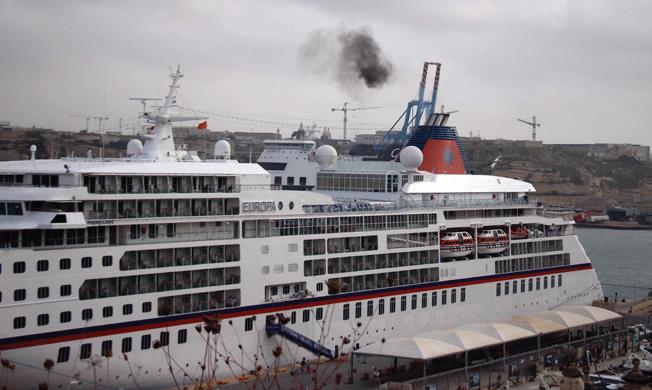
Archbishop at Simar
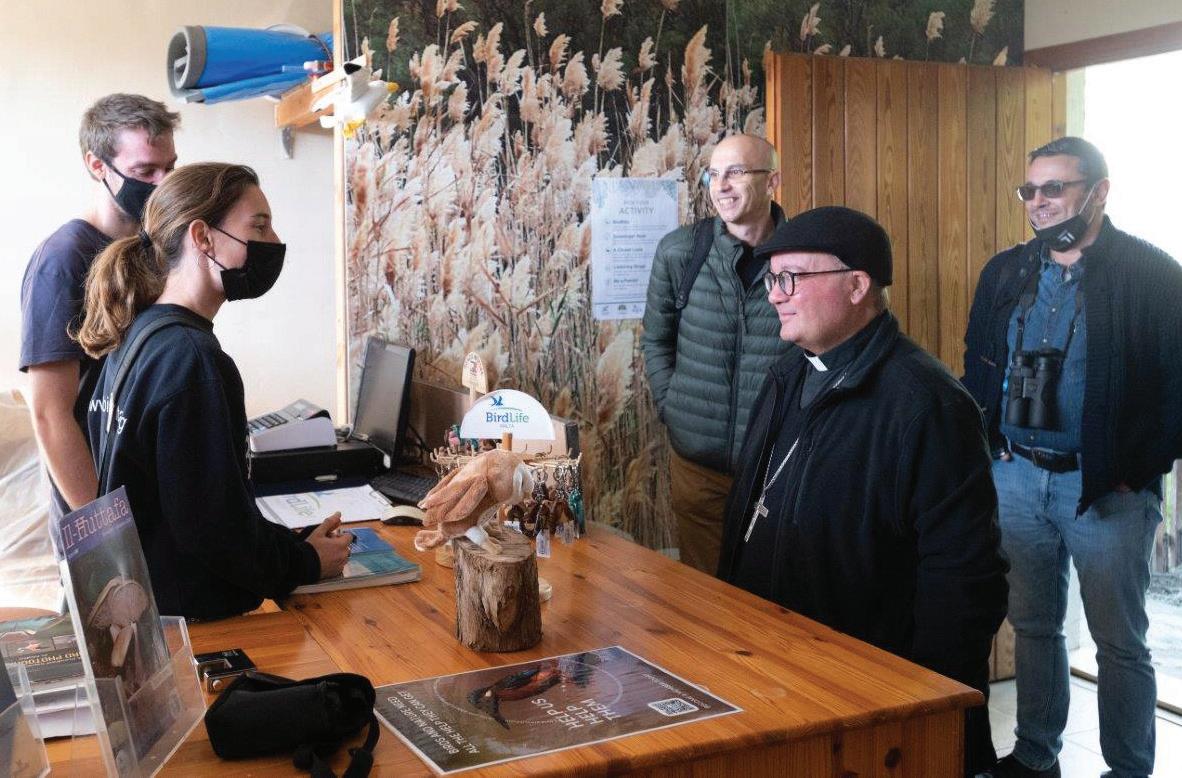
Mgr Scicluna meeting volunteering assistants at Simar Nature Reserve Environmental protection through nature reserves was discussed with the Archbishop of Malta during a visit by H.E. Mgr Charles J Scicluna to Simar Nature Reserve. On 5 December 2021 His Excellency was welcomed by BirdLife Malta President Darryl Grima, CEO Mark Sultana, Head of Land Management Mark Gauci and Communications Manager Nathaniel Attard. Apart from details on habitat restoration at the reserve, Mgr Scicluna was very interested to hear about the work we do in environmental protection and awareness through our many initiatives and programmes in the conservation, research and education fields. The Archbishop was taken on a tour of the nature reserve, where he showed a keen interest in the reserve flora. He met families and children visiting the reserve, as well as our volunteering assistants. He also spent time in the birdwatching hide and the bird ringing station, where he was given an explanation of bird ringing and its aims. At the end of his visit Mgr Scicluna was presented with a copy of our Managing Land for Nature report and our latest bird photography book by Aron Tanti.







